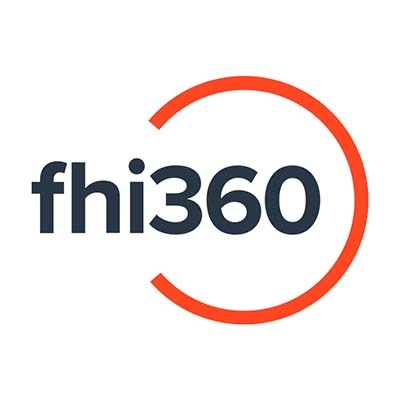VACANCY ANNOUNCEMENT FOR PROVINCIAL SUPPLY CHAIN COORDINATOR (PSCC)
FHI 360 is a global organization that mobilizes research, resources, and relationships so people everywhere have access to the opportunities they need to lead full and healthy lives. With collaborations in over 60 countries, we work directly with local leaders to advance social and economic equity, improve health and well-being, respond to humanitarian crises, and strengthen community resilience. We share data-driven insights and scalable tools that expand access and equity so communities can effectively address complex challenges, respond to shocks, and achieve thriving futures.
FHI 360 has been working in Nepal since 1993. Together with the Government of Nepal (GoN), civil society, and the private sector, FHI 360 works collaboratively in the areas of HIV, family planning (FP)/reproductive health (RH), health security and one health, nutrition, COVID-19 response, procurement, and supply chain management, local capacity strengthening, civil society and media strengthening, governance reform, and the environment and climate change. We request applications from qualified individuals for short-term assignments as mentioned below:
Position: Provincial Supply Chain Coordinator (PSCC)
Location: Based at Provincial Health Logistic Management Center (PHLMC), Dhanusha, Madhesh Province
The Provincial Supply Chain Coordinator (PSCC) is responsible to engage with the assigned PHLMC, province health stakeholders, districts, and local level governments (LLGs) coordinating with the province Ministry of Health, Ministry of Social Development and with external development partners (EDPs) at the field level.
Key Responsibilities
- Represent FHI 360 Nepal at provincial level building good rapport and relations with government and other stakeholder counterparts at province, district stores, LLGs and health facilities.
- Provide the project with data, inputs to reporting, gaps in project performance, sharing of success stories, case studies, information on new events, developments, and suggestions for interventions to monitor and improve supply chain management in the health sector.
- Proactively approach officials at Province Health Directorate (PHD), Province Health Training Center (PHTC), PHLMC, Health Office (HOs), LLGs and health facilities, and to collect and share the information on the procurement and supply chain situation and supply chain best practices.
- Together with FHI 360 Nepal office, strengthen province, LLGs and health facility capacity improving warehousing, inventory management, and distribution through best practice and compliance with agreed procedures.
- Support the province, district, and LLGs in safe disposal of expired and unusable commodities in district stores and health facilities.
- Assist the province, district, and LLGs in timely reporting and facilitate the re-supply and relocation of commodities, assist government counterparts in the re-ordering process when stocks are low using requisition forms, Logistic Management Information System (LMIS) forms and emergency order plans.
- Regular monitoring of stock status of the commodities and plan for the distribution and redistribution as required.
- Provide technical assistance (TA) to the PHD, PHLMC, districts and LLGs to organize forecasting and quantification exercise.
- Provide TA and coordinate to organize Provincial Supply Chain Management Working Group meeting on regular basis.
- Provide regular TA at PHLMC on inventory management, procurement, and good warehousing practices.
- Organize supportive supervision together with the Government of Nepal officials to district, LLGs and service delivery points (SDPs) to capacitate overall supply chain, good storage, system utilization and recording and reporting.
- Coordinate and provide TA to the Integrated Health Information Management System (IHIMS) and FHI 360 team and contribute to eLMIS scale-up to new sites including collecting data for site assessment, support with stock counting and taking final sign off from relevant stakeholders.
- Keep track of important province level information and work with officials at health facilities, LLGs, Public Health Officers (PHOs) and PHD to avoid duplication of data and information in the eLMIS from health facility level.
- Perform consumption data quality check at various levels and verify the stock status of key commodities to make sure the stock is adequate.
- Monitor and report stock status of key family planning and Maternal Neonatal and Child Health (MNCH) commodities in central, province, district, LLGs and health facilities.
- The PSCC should be aware of the prevailing context, progress, gaps, and challenges related to the health commodity supply chain and eLMIS.
Requirements
- Bachelor’s degree in health-related field, public health, supply chain management and pharmacy with 3 years of experience in supply chain implementation, oversight, and monitoring (preferably health commodities). Master’s degree preferable with relevant experience.
- Knowledge of LMIS in public health supply chain management and knowledge of eLMIS strongly desired.
- Previous experience in public health commodity management will be an asset.
- Experience in working effectively across various teams within the project and organization and building and sustaining positive working relationships with non-government organizations, private sectors, government and other stakeholders.
- Proactive in managing multiple tasks, managing and working in virtual work environment, and flexible and open for managing time for working with different teams in different time zones as needed.
- Excellent interpersonal, organizational, communication, team building and management, and problem-solving skills.
- Excellent oral and written English and Nepali including documentation skills.
Application Submission: https://apply/Provincial-Supply-Chain-Coordinator/FHI-360
Deadline for Application Submission: 5:00 p.m. October 28, 2023
Only short-listed candidates will be invited for written tests and oral interviews. FHI 360 reserves the right to reject any or all applications received without explanation.
